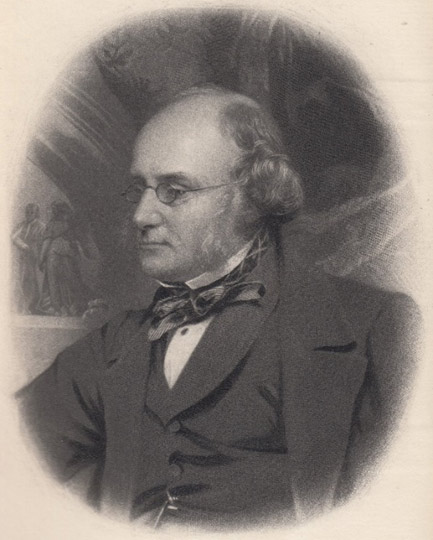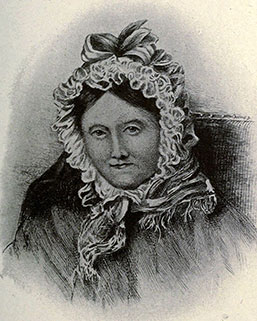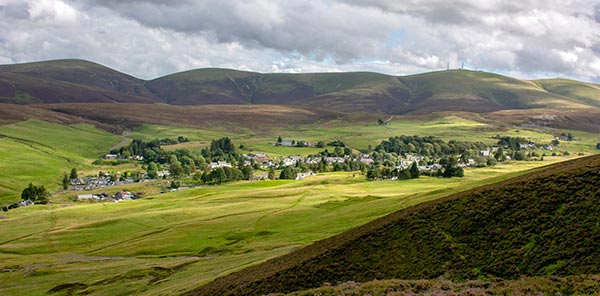Historic Commentators on Leadhills
In Victorian England there was a good deal of interest in working class learning under difficult circumstances which is exemplified in two books: Self-help by Samuel Smiles (1859) and The pursuit of knowledge under difficulties (1831) by George L Craik which praised people who had improved themselves in challenging circumstances. The Leadhills miners were a good example of such people and attracted praise from visitors and commentators.
Here the life of a young lead washer is described. It is notable that, despite his privations he is literate and a reader.
James Aitchison, Lead Washer. October 12, 1841:
Will be 15 years of age on the 2nd of December, and has been four years a washer. Goes to work at seven in the morning, leaves at 12 for breakfast [although he takes with him something in his hand to eat as he goes], and then he finally leaves at six for dinner. Sometimes the hours are lengthened by overwork, generally twice a-week, when he stays till seven, or half-past, and besides once a-month, when he is kept till half-past eight or nine.
The work is very nice in summer, but in cold and rough weather it is very bad. Was wet through to his shoulders to-day; most of them were as wet as himself. There is no shelter, except for the one little boy who feeds the grinding-rollers, who has a little cover; no others have any shelter overhead, nor any other shelter, except a board or two set upright to break the wind.
He is himself employed in skumming, which is in separating the broken sandstone from the broken ores of lead. Before he came to this he worked at other departments of the washing. Was once employed with three others in cleaning the chimneys of the smelting-mill, for which they had £4 amongst them. It occupied them three weeks to clean four chimneys, and made them sometimes very sick. Wears coarse woollen clothes, and wooden clogs, which, with woollen stockings, keep his feet both dry and warm, except in bad, wet, and frosty weather. Is often wet through, generally when it comes on wet about noon. Sometimes gets cold, so that once, for three weeks, he could not work. Some of the other boys also suffer from cold. They are generally stout and well. Is employed by Mr. Harrison Bell, the company’s overlooker of the washing, and paid by Mr. Mitchell, their cashier. Has 9d. a-day for all the days actually at work, and about 4d. a week for overwork.
The regular hours of work are 10 on every day in the week, except Saturday, when it is only five, the work being left at noon. Mr. Bell is very good as a master to us. He sometimes pushes the little ones to work, but never to hurt them. Is strong and stout now, though not formerly. Takes a piece of oatmeal-cake with him for breakfast in a morning. At breakfast has oatmeal-porridge and buttermilk, and oatmeal-cake; at dinner, potatoes and a little butter very often, and a little milk; scarcely ever flesh meat. Sometimes has a supper of buttermilk and oat-cakes.
Goes to no school, but the minister catechises the children at home. Was at a night-school for six weeks a year and a half ago. Many of the boys during winter go to evening-school. It is the master of the parish-school who teaches in the evening-school. Has not been to any school during the day since he began work. Reads to amuse himself; has read Andrew Wylie, Tales of a Grandfather, Tales of a Landlord, the Persecutions, and other books. There is nothing for the boys to do besides the washing, except to herd the cows, to which he prefers his present occupation.
In 1823 a visitor to Leadhills described the miners’ knowledge and reading
As the miners work only six of the twenty-four hours in the mines, and as the barrenness of the soil affords little scope for agricultural pursuits, they have of course abundance of time for reading: and I believe they generally employ it to good purpose; for many of them can converse upon historical, scientific, and theological points so as to astonish a stranger; and even on political questions, they express their opinions with great acuteness and accuracy.
Christian Observer 1823, p.26
Dr John Brown (1810 – 1882)
Dr John Brown was an Edinburgh doctor and literary man about town in Edinburgh who was given honorary membership of the Library in 1843.
Here he describes his fellow members:
…it is impossible to think with anything but respect of the stout-hearted, strong brained men who, after being in the bowels of the earth all day, sat down to wrestle with John Owen, or Richard Baxter, or dream of heaven and holiness with Scougall and Leighton, or refresh themselves with Don Quixote, the Antiquary, the Fool of Quality…
John Brown. The Enterkin. Edmonston and Douglas, 1865 p.21

“The full and generally favourable account of the moral and intellectual condition of the population of Leadhills… (was) Given in 1841 by Mr. Fletcher, secretary to the Children’s Employment Commissioners.”
“The intellectual and moral condition of this mining population, both at Leadhills and Wanlockhead is, according to the concurring testimony of all who are acquainted with them, above the average.”
“Both villages are remarkable for their circulating libraries, which are probably unsurpassed in the quality and number of books by any library belonging exclusively to working men…Both consist of at least 2000 volumes.”
“The school at Leadhills is well attended. It is said that the parents so appreciate the good opportunities of education provided at the school, that they will run the risk of having their wages arrested for small debts to shopkeepers, rather than deprive their children of the benefits which they are sensible that education will confer upon them.”
(pp.17-19)
Dorothy Wordsworth
In 1803 Dorothy Wordsworth, along with her brother and Samuel Taylor Coleridge, made a short tour of part of Scotland that included both Wanlockhead and Leadhills. This extract from her Recollections of a Tour Made in Scotland describes the village at the time of their stay, and includes comment on the use of the Library.
Leadhills, another mining village, was the place of our destination for the night; and soon after we had passed the cart we came in sight of it. This village and the mines belong to Lord Hopetoun; it has more stone houses than Wanlockhead, one large old mansion, and a considerable number of old trees – beeches, I believe. The trees told of the coldness of the climate; they were more brown than green – far browner than the ripe grass of the little hay-garths. Here, as at Wanlockhead, were haycocks, hay-stacks, potato-beds, and kail-garths in every possible variety of shape, but, I suppose from the irregularity of the ground, it looked far less artificial – indeed, I should think that a painter might make several beautiful pictures in this village. It straggles down both sides of a mountain glen. As I have said, there is a large mansion. There is also a stone building that looks like a school, and the houses are single, or in clusters, or rows as it may chance.

We passed a decent-looking inn, the Hopetoun Arms; but the house of Mrs. Otto, a widow, had been recommended to us with high encomiums. We did not then understand Scotch inns, and were not quite satisfied at first with our accommodations, but all things were smoothed over by degrees; we had a fire lighted in our dirty parlour, tea came after a reasonable waiting; and the fire with the gentle aid of twilight, burnished up the room into cheerful comfort. Coleridge was weary; but William and I walked out after tea. We talked with one of the miners, who informed us
that the building which we had supposed to be a school was a library belonging to the village. He said they had got a book into it a few weeks ago, which had cost thirty pounds, and that they had all sorts of books. ‘What! have you Shakespeare?’ ‘Yes, we have that,’ and we found, on further inquiry, that they had a large library, of long standing, that Lord Hopetoun had subscribed liberally to it, and that gentlemen who came with him were in the habit of making larger or smaller donations. Each man who had the benefit of it paid a small sum monthly—I think about fourpence.
The man we talked with spoke much of the comfort and quiet in which they lived one among another; he made use of a noticeable expression, saying that they were ‘very peaceable people considering they lived so much underground;’—wages were about thirty pounds a year; they had land for potatoes, warm houses, plenty of coals, and only six hours’ work each day, so that they had leisure for reading if they chose. He said the place was healthy, that the inhabitants lived to a great age; and indeed we saw no appearance of ill-health in their countenances; but it is not common for people working in lead mines to be healthy; and I have since heard that it is _not_ a healthy place. However this may be, they are unwilling to allow it; for the landlady the next morning, when I said to her ‘You have a cold climate,’ replied, ‘Ay, but it is _varra halesome_.’ We inquired of the man respecting the large mansion; he told us that it was built, as we might see, in the form of an H, and belonged to the Hopetouns, and they took their title from thence, and that part of it was used as a chapel. We went close to it, and were a good deal amused with the building itself, standing forth in bold contradiction of the story which I daresay every man of Leadhills tells, and every man believes, that it is in the shape of an H; it is but half an H, and one must be very accommodating to allow it even so much, for the legs are far too short.
We visited the burying-ground, a plot of land not very small, crowded with graves, and upright grave-stones, overlooking the village and the dell. It was now the closing in of evening. Women and children were gathering in the linen for the night, which was bleaching by the burn-side;—the graves overgrown with grass, such as, by industrious culture, had been raised up about the houses; but there were bunches of heather here and there, and with the blue-bells that grew among the grass the small plot of ground had a beautiful and wild appearance.
William left me, and I went to a shop to purchase some thread; the woman had none that suited me; but she would send a ‘wee_ lad’ to the other shop. In the meantime I sat with the mother, and was much pleased with her manner and conversation. She had an excellent fire, and her cottage, though very small, looked comfortable and cleanly; but remember I saw it only by firelight. She confirmed what the man had told us of the quiet manner in which they lived; and indeed her house and fireside seemed to need nothing to make it a cheerful happy spot, but health and good humour. There was a bookishness, a certain formality in this woman’s language, which was very remarkable. She had a dark complexion, dark eyes, and wore a very white cap, much over her face, which gave her the look of a French woman, and indeed afterwards the women on the roads frequently reminded us of French women, partly from the extremely white caps of the elder women, and still more perhaps from a certain gaiety and party-coloured appearance in their dress in general. White bed-gowns are very common, and you rarely meet a young girl with either hat or cap; they buckle up their hair often in a graceful manner.
I returned to the inn, and went into the kitchen to speak with the landlady; she had made a hundred hesitations when I told her we wanted three beds. At last she confessed she _had_ three beds, and showed me into a parlour which looked damp and cold, but she assured me in a tone that showed she was unwilling to be questioned further, that all her beds were well aired. I sat a while by the kitchen fire with the landlady, and began to talk to her; but, much as I had heard in her praise—for the shopkeeper had told me she was a varra discreet woman—I cannot say that her manners pleased me much. But her servant made amends, for she was as pleasant and cheerful a lass as was ever seen; and when we asked her to do anything, she answered, ‘Oh yes,’ with a merry smile, and almost ran to get us what we wanted. She was about sixteen years old: wore shoes and stockings, and had her hair tucked up with a comb. The servant at Brownhill was a coarse-looking wench, barefoot and barelegged. I examined the kitchen round about; it was crowded with furniture, drawers, cupboards, dish-covers, pictures, pans, and pots, arranged without order, except that the plates were on shelves, and the dish-covers hung in rows; these were very clean, but floors, passages, staircase, everything else dirty. There were two beds in recesses in the wall; above one of them I noticed a shelf with some books:—it made me think of Chaucer’s Clerke of Oxenforde:—
‘Liever had he at his bed’s head
Twenty books clothed in black and red.’
They were baking oat-bread, which they cut into quarters, and half-baked over the fire, and half-toasted before it. There was a suspiciousness about Mrs. Otto, almost like ill-nature; she was very jealous of any inquiries that might appear to be made with the faintest idea of a comparison between Leadhills and any other place, except the advantage was evidently on the side of Leadhills. We had nice honey to breakfast. When ready to depart, we learned that we might have seen the library, which we had not thought of till it was too late, and we were very sorry to go away without seeing it.
Location
15 Main Street,
Leadhills,
South Lanarkshire
Scotland ML12 6XP
Opening Hours
Saturdays and Sundays
2pm to 5pm.
May to September.
Visits by appointment can be arranged throughout the year.
Leadhills Miners' Library is the World's first library for working people.
Alongside our collection of some 2500 books dating back to the 18th Century, the library contains many historical archives and photographs as well as a display of rare minerals connected to the local mining industry.
We also hold a 46 volume collection of mining journals and bargain books, recording contracts between the mine managers and miners from 1737-1854. It is the largest collection of its kind in Scotland and one of the largest in Britain.
Local Leadhills and Wanlockhead Links
Lead Mining Museum: https://www.leadminingmuseum.co.uk/
Leadhills Railway: https://www.leadhillsrailway.co.uk/
Ski Club: https://skiclub.lowtherhills.com/
Hopetoun Arms Hotel: https://www.hopetounarms.co.uk
